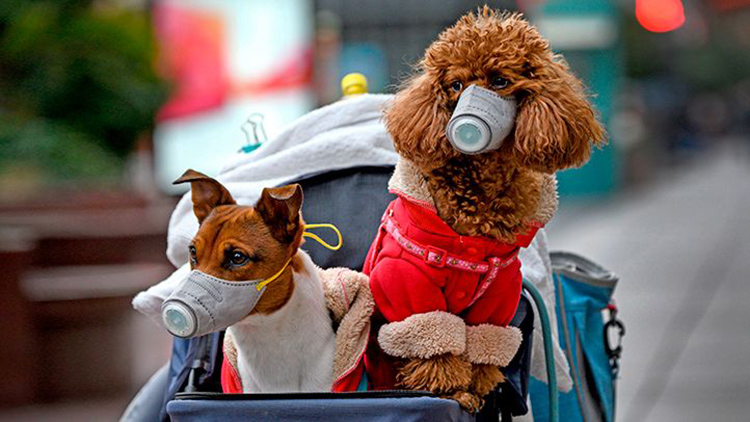
There is no evidence that pets can contract or spread COVID-19. Indeed, the CDC says it has not received any reports of pets or animals becoming sick with the disease.

DR. LORI HOE
Dr. Lori Hoe, a veterinarian at Main Street Veterinary Hospital in Cornelius, said we are still leaning about COVID-19. “As of right now there is no evidence that pets can be infected with COVID-19 nor pass it to other animals or humans,” she said.
The American Veterinary Medical Association (AVMA), infectious disease experts and multiple human and animal health organizations agree there is no evidence to indicate that pets become ill with COVID-19 or that they spread it to other animals, including people.
Interact normally with your pet
Transmission primarily occurs when there is contact with an infected human’s bodily secretions, such as saliva or mucus droplets from a cough or sneeze.
Transmission via touching a contaminated surface or object and then touching the mouth, nose, or possibly eyes is also possible, but appears to be a secondary route.
Hard surfaces like countertops and door knobs transmit viruses better than porous materials—paper money, pet fur—because porous materials absorb and trap the virus, making it harder to contract through simple touch.
If you are not ill with COVID-19, you can interact with your pet as you normally would, including walking, feeding, and playing, the AVMA says.
But you should continue to practice good hygiene during those interactions including washing your hands before and after interacting with your pet.
Keep strangers at a distance
It makes sense to be cautious. One way to make sure your dog doesn’t get touched by strangers is to avoid letting him off-leash in busy park.
Meanwhile, there are no local reports of pets being dumped at the Cornelius Animal Shelter.
If you do have COVID-19 limit contact with animals until more information is known about the virus, the AVMA says. “Have another member of your household take care of walking, feeding, and playing with your pet. If you have a service animal or you must care for your pet, then wear a face-mask; don’t share food, kiss, or hug them; and wash your hands before and after any contact with them,” the AVMA says.




